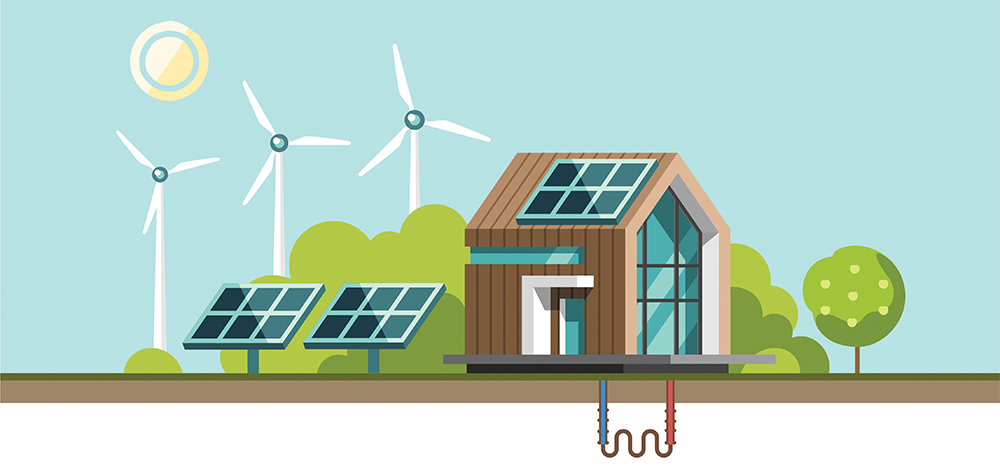Everything You Want to Know about Heat Pumps
By Staff | Spring 2020 | Clean Power Guide
Want to climb the clean power learning curve with healthy speed and limited pain? Here are some frequently asked questions when it comes to heat pumps.
Why are electric heat pumps considered a clean, green choice?
Efficiency is the key to the renewable energy revolution. Because heat pumps transfer heat rather than burning fuel like a conventional boiler, they are significantly more efficient and also quieter and safer to operate. Like anything electric, they can be powered by solar or other renewable energy.
What are the primary heat pump technologies for a home or business?
Ground-source heat pumps (aka geothermal) transfer warmth from the ground or groundwater; air-source heat pumps exchange heat with the outside air through a condenser; and heat pump water heaters heat water by drawing heat from the air. All these technologies can make good sense in a new building, but for retrofits there are additional variations depending on what kind of heating system is there now (ducted or ductless, air or water transfer).
What kinds of buildingS are best suited for air-source heat pumps and geothermal?
A well-insulated and air-sealed building will make the most of any heating and cooling technology. Air-source heat pumps work best where there is a relatively open floor plan without a lot of nooks and crannies. Ground-source heat pumps are easiest to install where there are already ducts in place.
What are some factors to consider in choosing a contractor to install heat pumps?
First, make sure a contractor is experienced in installing and servicing the type of system you want. The major manufacturers like Mitsubishi and Waterfurnace provide specific training and certification, and so do third parties like North American Technical Excellence (NATE) and International Ground Source Heat Pump Association. Those certifying organizations may also be a source of extended warranties through your contractor. Finally, look for someone who understands more than the equipment, who is willing to talk with you about building efficiency and the dynamics of heating and cooling, to make sure your system is designed and sized for optimal performance.
How effective are heat pumps in a cold climate like ours?
Very effective, if you buy a unit that is classified as “cold climate.”
What kinds of maintenance will my heat pump systems need?
Air source heat pumps mainly need to have their filters cleaned once or twice a month (a very easy process). Ground source heat pumps are also low maintenance but need periodic checks for antifreeze levels, dirt and debris, and any obstructions in the ductwork.
What if my building is drafty or poorly insulated?
It is so worthwhile to have an energy assessment before installing these technologies—and to follow the recommendations for sealing air leaks and adding insulation. Otherwise, you run the risk of buying an oversized heat pump system to provide you with enough energy to waste!
NYSERDA provides abundant information on approaches to energy audits and ratings for your building. You can also find local contractors who are trained and competent to help you with air sealing, insulation, and other measures.
